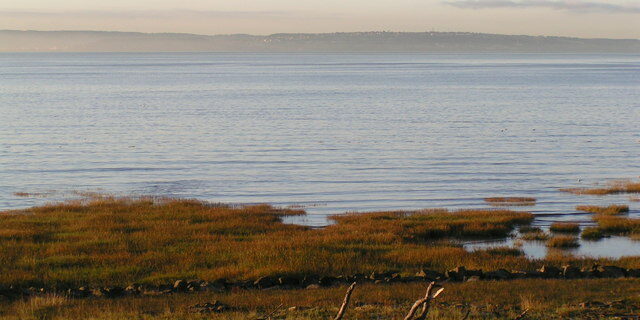March 2025
We welcome EDF’s announcement on 4 March 2025 of their decision to install the required Acoustic Fish Deterrent (AFD) at Hinkley Point C power station to help protect fish from being killed by the cooling water intake. This is promising news, however BART and other fisheries experts await further detail on the specification of the AFD which must provide the best available protection for fish. This deterrent is one of three key mitigation measures required under the original 2013 Development Consent Order, designed to work together to reduce harm to fish populations in this highly sensitive and internationally important environment. Removing one protection would weaken the effectiveness of the others, increasing the overall impact on fish.
For any development, avoiding environmental harm should always be the priority, and reducing it to a minimum at the very least in accordance with the Mitigation Hierarchy. Compensation should be considered as a last resort where damage cannot be mitigated, and compensation measures must be meaningful, measurable, and effective.
In this case, that means implementing all three mitigation measures—the Acoustic Fish Deterrent (AFD), carefully designed water intakes, and an effective fish return system. However, even with these measures in place, fish species and other marine creatures will still be killed after getting drawn in through the cooling water intakes. Over the 60-70 years of the power station being operational and drawing in the equivalent of three Olympic swimming pools of water every minute in the middle of the estuary, all available steps must be taken to monitor, mitigate and compensate impacts on fish, other wildlife and ecosystems.
To fully address the power station’s impact, alongside delivering these mitigation measures, EDF must assess and effectively compensate for the residual impact on fish species, including delivering further work to improve fish passage in the rivers that flow into the estuary. Whilst salt marsh can deliver many benefits, we support EDFs plans to install the AFD and focus on other measures for compensation which directly benefit affected fish species to enable fish to move freely between marine and freshwaters to complete their life cycles.
We remain extremely concerned that no compensation is currently proposed for the Bristol Avon Catchment, and have highlighted to EDF priority projects for fish recovery in the Bristol Avon Fish Recovery Strategy which would directly support migratory fish species impacted by the water intake at Hinkley Point C.
We urge regulatory authorities to thoroughly assess EDF’s proposals to ensure they deliver real environmental protection, robust monitoring and an Adaptive Management Plan aligned with existing and new legislation including the recently published UK national biodiversity strategy and action plan.
To summarise:
- BART welcomes the announcement from EDF that an AFD will be installed as required and originally planned.
- BART and other fisheries experts await further detail on the specification of the AFD which must provide the best available protection for fish.
- The AFD and other measures will provide important protection, however fish will still be killed and appropriate compensation must be provided that effectively supports allaffected fish species and catchments.
- We support EDF’s plans for compensation to focus on fish passage easements, however we urgently ask for this to include compensation for the Bristol Avon given its importance for migratory fish and proximity to Hinkley Point C.
- We urge regulatory authorities to thoroughly assess EDF’s proposals to ensure they deliver effective environmental protection, monitoring and an Adaptive Management Plan aligned with existing and new legislation including the recently published UK national biodiversity strategy and action plan.
How you can help
Sign our petition Save Severn Estuary’s Fish: Sign the petition
Contact your MP Email Template: Call on EDF to protect Severn Estuary fish







